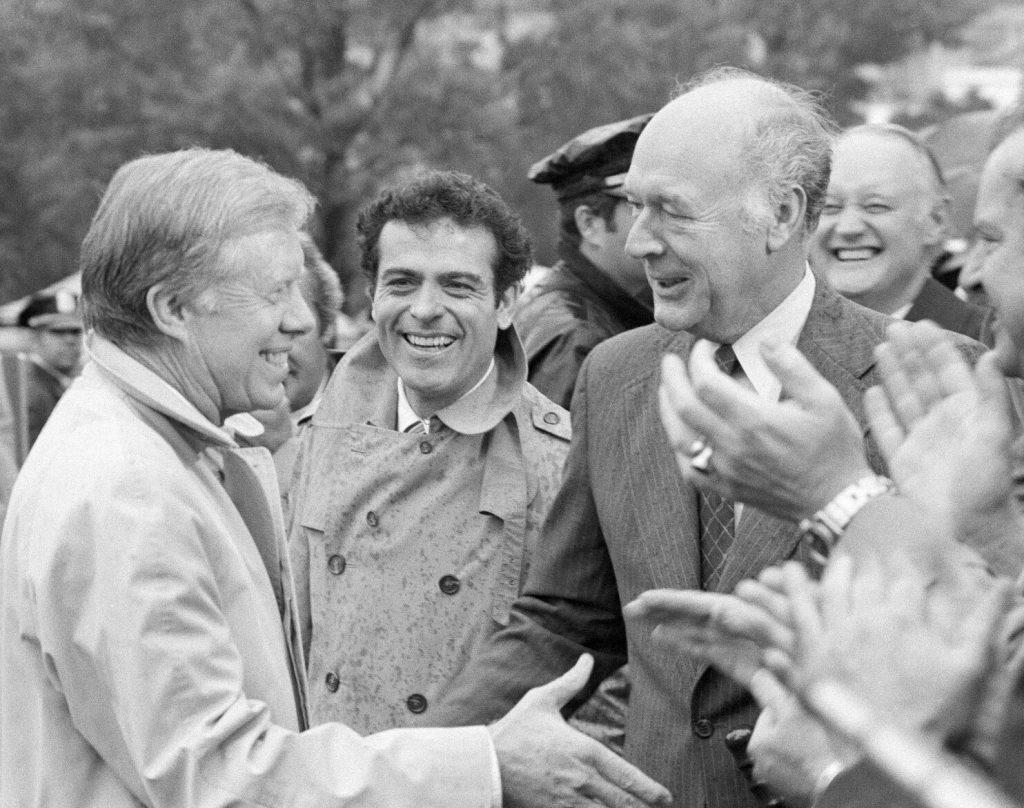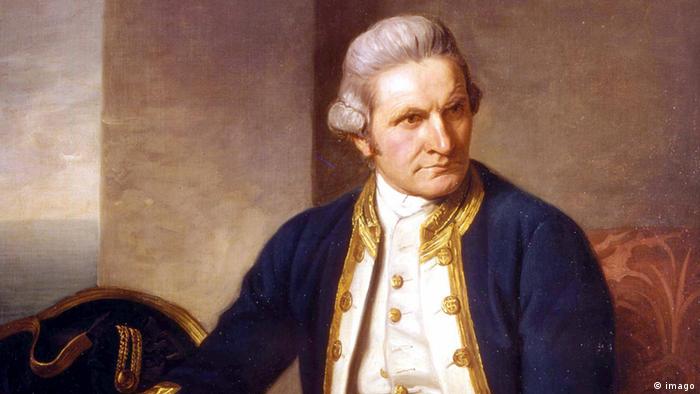When a former gypo logger from Clearwater County, Idaho was sworn in as Secretary of the Interior 45 years ago this week, history was made. Cecil Andrus was the first Idahoan ever in the Cabinet, a singular accomplishment for a guy who never completed college, but who, with grace and grit, distinguished himself as one of the great conservationists of the 20th Century.
For obvious reasons – I worked for Andrus for nine years and enjoyed an association with him for nearly 25 more years – I infrequently invoke his story. I am certainly not an objective analyst of the man who served longer as Idaho governor than any other, even as the basics of his career, without need for embellishment, speak to a giant of the state’s and nation’s politics.
The occasion of Andrus’s arrival in the Cabinet on January 23, 1977, does seem worth remembering, if only because there are so few like him any longer, a statement thousands of his former constituents would readily make without fear of contradiction.

“Your policies leave an indelible mark on our state,” John Evans said of the man he replaced as governor. “Your style and warmth have brought a new dimension to the governor’s office.” Indeed, that was a true statement.
President Jimmy Carter said of all his Cabinet selections, Andrus, whose tenure as governor overlapped with Carter’s time as governor of Georgia, “was closest to me in the past, the only Cabinet member I never had to hesitate on.”
The list of Andrus gubernatorial accomplishments is long, and arguably not matched by any successor, including: the creation of kindergartens, the state land use planning law, successful opposition to indefinite nuclear waste disposal in Idaho, champion of salmon recovery, cheerleader for a diverse and robust economy and a decently funded education system. Andrus signed the bill creating Boise State University, appointed the first women to the state’s highest courts and famously – and uncomfortably for his press secretary – dubbed the National Rifle Association “the guns nuts of the world.”
Andrus was tough. He remembered an insult and an enemy but also had a big soft spot for the underdog and the under-represented. I distinctly remember a meeting in a Moscow, Idaho hotel room with north Idaho bigwig Duane Hagadone who sought to float a golf green out on the surface of Lake Coeur d’Alene. The meeting didn’t last long, but the message was clear – the people of Idaho owned that lake, not some rich hotel developer.
The guy could deliver a zinger with a smile. When Washington Democratic congressman Norm Dicks objected to an Andrus nuclear waste embargo – spent nuclear fuel was accumulating in Dicks’ district as a result – Andrus quipped that the congressman, a former University of Washington football player, “had played too many games without a helmet.”
When people asked about the Andrus victory in 1970 over incumbent Republican governor Don Samuelson, a guy who could mangle the simplest sentence, Andrus would quickly stop any negative comment about Big Don. “Don’t say anything bad about Don Samuelson,” Andrus would say. “If there hadn’t been a Samuelson there never would have been an Andrus.”
Despite his disdain for the gun lobby – the NRA had given Andrus a failing grade in 1986 because he saw no need for armor piercing ammunition or assault rifles – he was likely the most committed hunter who ever served in public office in Idaho. After retiring from public life, Andrus came into my office one afternoon carrying a new shotgun. “I need to stash this with you for a while,” he said. “I can’t take it home while Carol is in the house, or she’ll know I bought a new gun.”
Many who remember Andrus remember his recall for names, as well as his sense of humor. After riding horseback in the big, raucous fair parade in eastern Idaho, I noted that the reception afforded the governor was pretty good. He smiled and said, “Yeah, some of those guys were waving with all five fingers.”
Joe Biden caused an unnecessary two-day distraction recently when he – correctly – labeled a Fox News reporter “a dumb SOB.” Andrus would have shared the sentiment but would have handled the reporter much differently. I know. I saw him do it many times. He would have fixed his gaze on the silly questioner and said something like: “You know, I’ve heard some stupid questions in my time and that is just the latest.”
Andrus frequently said being governor was his dream job in politics, a bully pulpit from which to set public expectations and above all solve problems. He saw himself, as he often said, “as a glorified problem solver.” He took the same attitude to Washington where he skillfully managed the sprawling Interior Department for four years. Knowing that his time in that office was limited, and with many problems sure to compete for attention, Andrus made a list of priority items. He kept that limited list, only about a half dozen items, on a yellow legal pad in his top desk drawer.
High on the list was resolution of the years-old fight over what lands to protect in Alaska, the nation’s “last frontier.” Andrus worked the issue with relentless precision, using all his skill as a strategist and negotiator to finally produce – during a lame duck session of Congress in 1980 – the greatest piece of conservation legislation in American history. The national parks, recreation areas, monuments and wildlife preserves in Alaska are his legacy to generations unborn.
It’s all too apparent that Idaho’s Andrus was a product of a different political era, a time when character and accomplishment counted for more than party or puffery. Andrus was a stickler for the rules of politics but reduced the rules for those who worked for him to a short list: no surprises, don’t cheat – on an expense account or in a political campaign – don’t drink at lunch, be on time, or better yet be ten minutes early, and remember that you work for the public.
When Andrus was sworn in for his third term in 1987, his Republican lieutenant governor C.L. “Butch” Otter, later governor in his own right, described the guy pretty well. “His focus has been on working together to solve problems,” Otter said.
Not a bad legacy.
—–0—–
Additional Reads:
My recommendations for the weekend…
How to kill a god: the myth of Captain Cook shows how the heroes of empire will fall
I’ve long been fascinated by the Cook story. This piece from The Guardian is terrific – myths, history, colonialism…Hawaii.

“On 17 January, the Resolution cast anchor at last in a black-sand bay and a crowd of 10,000 gathered to await it. Five hundred canoes, laden with sugar cane, breadfruit and pigs, glided up to the ship. Histories narrate that for the people of Hawaii, the arrival of Cook was no less than an epiphany. ‘The men hurried to the ship to see the god with their own eyes,’ wrote the 19th-century Hawaiian historian Samuel Kamakau. “There they saw a fair man with bright eyes, a high-bridged nose, light hair and handsome features. Good-looking gods they were!” An elderly, emaciated priest went on board the Resolution and led the deities ashore. Thousands fell to their knees as Cook passed by. The priest led the captain to a thatched temple, wrapped Cook in a red cloth and sacrificed a small pig to him, as the people recited lines from the Hawaii epic Kumulipo, a creation myth.”
Why most NFL head coaches are white – behind the NFL’s abysmal record on diversity
If you are looking ahead to the Super Bowl you might want to reflect on this story, and why the numbers are so clearly out of whack.
“Given the impact of systemic racism across all elements of society, it is hardly surprising that NFL coaches, analysts and scholars – including those in media studies, sport studies, sociology, sport management, and behavioral science – point to systemic racism as a reason for the lack of Black coaches in the league.”
INSIDE JERRY FALWELL JR.’S UNLIKELY RISE AND PRECIPITOUS FALL AT LIBERTY UNIVERSITY
Gabriel Sherman in Vanity Fair on the sleazy, fascinating and I would say ultimately disgusting story of Jerry Falwell, Jr.
“Jerry not only endorsed Trump, he lavished him with cringeworthy praise. ‘Trump reminds me so much of my father,’ Jerry told Fox News in December 2015. ‘In my opinion, Donald Trump lives a life of loving and helping others as Jesus taught,’ Jerry said when he introduced Trump onstage at Liberty shortly before the Iowa caucuses. (Trump then mangled a Bible verse, citing ‘Two Corinthians’ instead of ‘Second Corinthians.’) Jerry even defended Trump when almost no one else would. After the Access Hollywood tape leaked, in October 2016, Jerry told a radio interviewer: ‘We’re never going to have a perfect candidate unless Jesus Christ is on the ballot.’ It provided cover for evangelicals to excuse Trump’s utter lack of decency or morals. ‘After that, Steve Bannon called me and said, ‘You won the election for us,’ Jerry recalled.”
The corruption and rot is deep.
That’s it. That’s the post this week. Be well. Be kind. Eat your peas.
